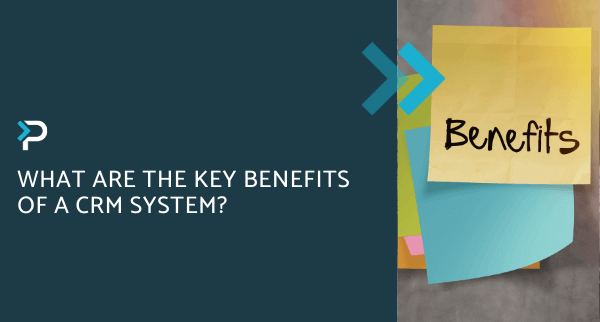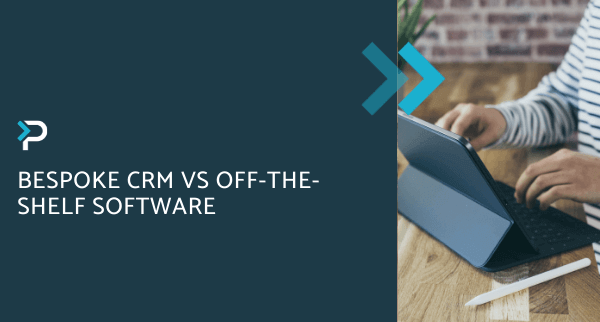Reasons to move from spreadsheets to a CRM system
Reasons to move from spreadsheets to a CRM system
March 3rd, 2024
6 min read
When starting a business, many people resort to Excel spreadsheets to manage their information (finances, customer data, leads, notes, etc). This may work initially, but as your business grows, then Excel becomes cumbersome and difficult to manage, with limitations arising. A Customer Relationship Management (CRM) system enables you to store all your information in a centralised database. Offering far more features than a simple spreadsheet possibly could, you are able to streamline your day-to-day tasks, work more efficiently, and keep all of your data organised and easy to access. If you’re at the point where Excel spreadsheets are no longer working for your business, then it may be time for a change. Hopefully, this blog gives you a few reasons to find a new solution and why a CRM should be your next move…
Advantages and disadvantages of spreadsheets
Firstly, let’s look high-level at the advantages and disadvantages of spreadsheets.
Advantages of Spreadsheets:
- Easy to use
- Excel is fairly well known by most users
- Works ok for a small database with limited information
Disadvantages of Spreadsheets:
- Difficult to share data
- Challenging for multiple users to access and make changes
- No relational capabilities between the data
- Time-consuming to input, review, analyse and report on spreadsheet data
- Limited reporting insights
- No audit trails for changing data
- Risk of losing data
- Chance of being saved to individual laptops, employees then leave the business and take confidential business information with them
- Business Continuity – Spreadsheets are often developed by internal employee/s with a technical capability, so there is a heavy reliance on that individual/s
Five reasons why you should switch from Excel to a CRM…
1. Better lead management
Using Excel for this purpose can quickly become quite frustrating, as spreadsheets are not designed to show a large amount of data in one go. They can physically store a lot of information, however, you will have to scroll to see it. Additionally, it is not the most positive user experience trying to capture detailed notes in a spreadsheet (e.g. inputting an overview of a phone call with a prospect).
In contrast, a CRM is designed with lead management in mind and therefore offers a far greater user experience. You have the ability to store detailed information about leads and clients, from their name and email, their qualification stage, products/services they are interested in, communications and more. Sales teams and managers are also able to get a clearer idea of who is following certain leads, the communication trail back and forth, and even automate reminders to ensure that follow-ups are not missed. On top of this, a bespoke solution means that you can customise the fields to track other data that is relevant to your business and specific processes.
2. Enhanced collaboration and data access
Organisations that use spreadsheets will understand how complicated things can get when spreadsheets are shared, various people are working on different versions and changes are not being tracked or updated in real-time. Additionally, spreadsheets are not known for being overly mobile-friendly, which is a problem for users who need access on-the-go.
A CRM centralises all information and overcomes the above challenges. Users are able to view records at the same time, changes made by one user are instantly accessible to others, and information can be accessed from any device which is a positive user experience.
3. Integrations
As part of the Microsoft Office suite, Excel is designed to work well with other products such as Word or PowerPoint. However, when it comes to transferring information between other programs and business systems, spreadsheets are restrictive; this can be a real challenge for businesses that need to pull information from other systems.
With a CRM solution, you can easily integrate other applications allowing the data to flow between, without manual intervention. On top of this, email integration is an important feature within most CRM systems and allows users to track and view client emails inside the CRM. This gives your team complete transparency of all correspondence, so you can see what’s been followed up and what was said.
4. Improved data security
With Excel spreadsheets, there is little security around what can be shared and who has access to what information, posing a significant security risk. Additionally, if an employee saves files to their personal computer and then leaves your organisation, it’s possible that they could continue to access that company data — unless you remember to change the password on all spreadsheets. Using a CRM system provides improved security around your data, using secure credentials to sign into the system. Security permissions can also be set around particular elements, granting access to only those users who require it. Therefore, when a user leaves the company, simply deactivate their account and have confidence that your data is safe.
5. Enhanced reporting
Excel spreadsheets can produce various graphs, charts and reports, however, these are usually at a high level. Unless you understand the commands and formulas to extract and evaluate your data, it can be difficult to gain valuable insights. On top of this, Excel lacks real-time accuracy, so any new information will need to be manually updated in order to populate an accurate report. This takes time to pull together and often by the time that this is completed, that data is outdated. Most CRM systems have built-in dashboards and reporting capabilities, which will allow you to interrogate your data in real-time. Additionally, there are tools which can be integrated with a CRM, such as Microsoft Power BI, that allow you to visualise large amounts of information in easy-to-read dashboards and charts, and drill down further to gain valuable insights.
Get in Touch
When it comes to running your business, traditional spreadsheets have a lot of limitations. They may be suitable as you start, however in the long-term as your business grows, using Excel as a CRM becomes increasingly difficult. If you’re struggling to operate within the confines of spreadsheets, it may be time for a change. Take a look at our blog to uncover some common CRM misconceptions.
Get in touch with Pragmatiq today to discuss how your business can become more efficient and move away from Excel. Please get in touch by emailing info@pragmatiq.co.uk, or call us on 01908 038110. If you’d prefer, please fill out the contact form and a member of our team will be in touch shortly.
Want to keep in touch?
Sign up to our newsletter for regular updates.
"*" indicates required fields


